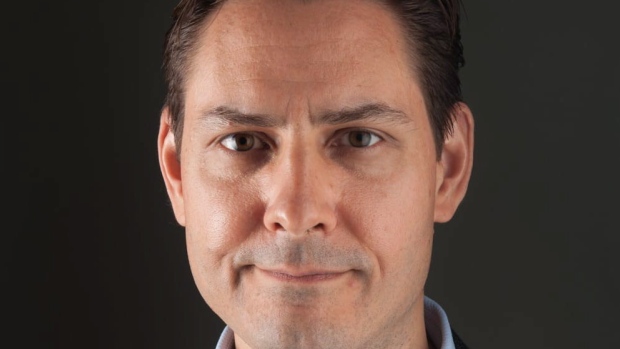Dec 20, 2018
Details of former Canadian diplomat's detention in China revealed
, Bloomberg News

The ex-Canadian diplomat detained in China this month as Beijing fumed over the arrest of a Huawei Technologies Co. executive is being denied a lawyer and limited to one consular visit a month, according to a person familiar with the situation.
The conditions are among the first details of Michael Kovrig’s detention since the International Crisis Group senior adviser was taken into custody by China’s spy agency on Dec. 10. The case — along with that of another Canadian citizen detained on the same day — have plunged Canada’s ties with its second-largest trading partner into crisis.
Kovrig is being held at a secret detention facility where he’s questioned three times a day and unable to turn off the light, said the person, who asked not to be identified discussing the case. He’s been allowed one 30-minute visit by Canadian Ambassador John McCallum in Beijing, in which he appeared stressed but unharmed, the person said.
The Chinese Ministry of Foreign Affairs didn’t immediately respond to a faxed request for comment Friday, but an agency spokeswoman said Monday that Kovrig and Spavor were being held “in accordance with the law” and that their legal rights had been guaranteed. The Canadian Embassy in Beijing also didn’t respond to a request for comment.
The conditions of Kovrig’s confinement underscore the personal stakes of a diplomatic feud that erupted after Canada’s arrest of Huawei Chief Financial Officer Meng Wanzhou earlier this month as part of a U.S.-led extradition effort. China’s Ministry of State Security detained Kovrig and North Korea travel guide Michael Spavor just days later, leading to speculation that the investigations were part of a campaign of reprisal.
The cases have reverberated through China’s community of foreign diplomats, business consultants, journalists and non-profit workers, many of whom operate in a legal gray area. Executives from both sides of the U.S.’s trade war with China have been reconsidering unessential traveling since the spat began.
Meng — the daughter of the telecommunications company’s founder — was released on bail Sunday, pending extradition proceedings that could last months, if not years.
China’s foreign ministry has said Kovrig and Spavor were “suspected of activities endangering national security,’’ allowing authorities to hold them for as long as six months without charge or access to a lawyer. Crisis Group, Kovrig’s current employer, has said there was nothing secretive about his work, which involved writing public reports designed to prevent conflict.
While it’s unclear whether the Kovrig and Spavor cases are related, both men belong to a small community of experts in China’s ties with North Korea and were detained on the same day. Kovrig was picked up off a Beijing street at 10 p.m. Dec 10, the person said.
The description of Kovrig’s detention resembles the experience of Canadians Kevin and Julia Garratt, who ran a coffee shop in northeastern China before their lengthy detention by the Ministry of State Security. They reported six-hour daily interrogations, constant fluorescent light, refused lawyers and monthly consular visits in which they were barred from discussing their cases.
Like the Garratts, Kovrig was moved to another location before his consular visit, the person familiar with the situation said. Although Canadian Global Affairs, the country’s foreign service, learned of Kovrig’s detention soon after it happened, they weren’t officially informed by the Chinese until almost two days later, the person said.











